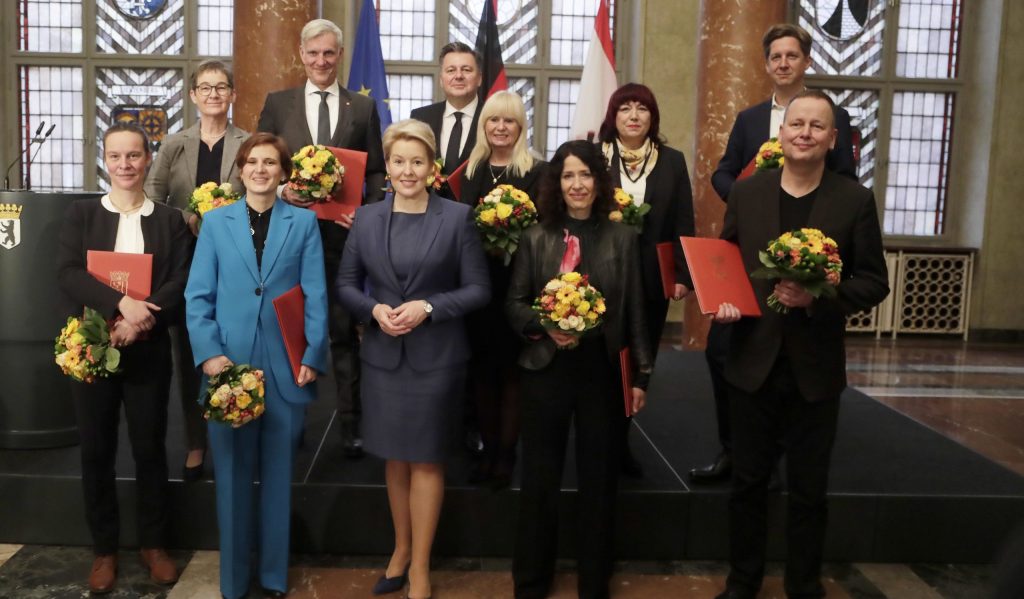Berlin´s new Coalition commences work
Following the February 2023 election in Berlin, the Social Democrats (SPD) and Conservatives (CDU) have been working to form a coalition government. After seven weeks of negotiations a coalition agreement has been reached to govern the state of Berlin, despite the fact that there are critical differences between the two parties.
[caption id="attachment_1752" align="alignnone" width="1024"] Franziska Giffey, Regierende Buergermeisterin, bei der Ernennung der Senatoren fuer die neue Landesregierung im Rotes Rathaus in Berlin, mit Lena Kreck, Ulrike Gote, Stephan Schwarz, Katja Kipping, Andreas geisel, Iris Spranger, Bettina Jarasch, Astrid Sabine Busse, Daniel Wesener, Klaus Lederer,
Franziska Giffey, Regierende Buergermeisterin, bei der Ernennung der Senatoren fuer die neue Landesregierung im Rotes Rathaus in Berlin, mit Lena Kreck, Ulrike Gote, Stephan Schwarz, Katja Kipping, Andreas geisel, Iris Spranger, Bettina Jarasch, Astrid Sabine Busse, Daniel Wesener, Klaus Lederer,
Copyright: DAVIDS/Sven Darmer, 21.12.2021[/caption]
The new coalition replaces the previous alliance between the SPD, Greens, and the Left Party (Red-Red-Green coalition).
The coalition agreement is a 135-page document with 24 chapters titled "The Best for Berlin". It includes the appointment of Kai Wegner (CDU) as Governing Mayor - the first conservative mayor in more than two decades while Franziska Giffey (SPD) has become his deputy: mayor and senator for economics, energy and business.
The new government aims to modernize the economy and increase the minimum wage, accelerate the green transition, also by introducing climate protection laws, strengthening of roads and rail traffic, providing greater resources to the local police, strengthening the prevention of extremism, and fighting antisemitism.
The 2023 coalition agreement does not seem to have a clear focus on the real estate industry. However, the agreement does mention that building and housing should be affordable, climate-neutral, sustainable, barrier-free where possible, innovative, and with vibrant communities.
On the other hand, some housing rights groups have criticized the coalition for cutting back on housing policy and not implementing the mandate of the 2021 expropriation referendum.
The new government consists of eleven ministries which are evenly distributed between the coalition partners: five were assigned to the CDU (senate for finances, senate for mobility, transport, climate protection and environment, senate for education, youth and family. Another five to the SPD (senate for interior and sports, senate for labour, social affairs, equality, integration, diversity, and anti-discrimination, senate for urban development, construction, and housing) and one party-independent senator (senator for justice and consumer protection)
The next election will already be held in 2026, the coalition partners have only limited time to show proof their collaborative power and introduce significant changes for Berliners.
